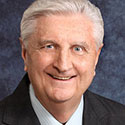The Real Problem with Greta Thunberg Is Not Her Age
By Foundation for Economic Education (FEE)

Greta Thunberg first came into the public light in 2018 when she started a school strike on climate in front of the Swedish parliament.
March 15th saw enthusiastic worldwide school student protests inspired by passionate appeals from 16-year-old Swedish school girl-turned-global-leader Greta Thunberg. Thunberg first came into the public light last year when she started a school strike on climate in front of the Swedish parliament. She rose to worldwide fame in January when she addressed the audience at the World Economic Forum in Davos.
Predictably, a lot of the reactions from those who are skeptical of climate change alarmism seem to focus on Thunberg’s age. Even Bjorn Lomborg seems to have alluded to her in his remark about how the predominant narrative about climate change makes children scared.
I disagree with this perspective. I believe that 16-year-olds have as much intellectual capacity as legal adults to understand the issues related to climate change and the potential measures that could be taken to mitigate it. However, if 16-year-olds desire to seriously contribute to important political debates, they should, like anyone else, do it without engaging in demagoguery and scaremongering.
It is here that Greta Thunberg—in spite of all her genuine sincerity and passion—has failed spectacularly and made the legions of her fans, as well as people who may face the consequences of the panicky measures she advocates, a great disservice.
False Sense of Urgency
To get a taste of the content of Thunberg’s preachings, let us consider her recent remarks to European Union President Jean-Claude Juncker:
We have to focus every inch of our being on climate change. Because if we fail to do so then all our achievements and progress have been for nothing. […] According to the IPCC report, we are about 11 years away from being in the position where we set off an irreversible chain reaction beyond human control. To avoid that, unprecedented changes in all aspects of society need to have taken place within this coming decade.
There is no place for nuance here, no trace of uncertainty, no appeal to actual facts or pragmatics of politics—only the demand for total commitment and sacrifice because the absolute urgency of our predicament is supposed to be self-evident since none other than IPCC purportedly said so.
I would wager that it would be pointless to ask Thunberg any serious questions about the actual science underlying the climate change issue—to ask her how much the Earth has warmed so far since 1979 compared to computer model predictions; that the bulk of the recent warming occurred during the El Niño stages of the ENSO climate oscillation; or whether she is aware that the doubling of CO2 can only in itself cause only about 1°C of warming and that to postulate alarmist scenarios one needs to postulate uncertain positive feedbacks, whereas, in reality, the net feedback may be zero or negative; that a lot more people die from cold temperatures than from hot ones and that it is not extreme cold temperatures that are the most deadly; that increased CO2 concentrations are good for plant life, and so on.
Let us focus on an easier issue and ask whether the latest IPCC report even in the (as usual) distorted summary for policymakers says anything remotely similar to Thunberg’s 11-years-left-till-Apocalypse-unless-we-act claim. Unsurprisingly, the summary—biased as it is in favor of alarm—says no such thing. Thunberg seems to be wildly misinterpreting the statement on page 6 of the summary that “global warming is likely to reach 1.5°C between 2030 (till which date 11 years remain) and 2052 if it continues to increase at the current rate.” There is no implication in the summary that this extent of warming may cause catastrophic planetary consequences.
Even if we take what Thunberg claims about the inevitable impacts of an unaddressed climate change at face value, she does not appear to be cognizant that the only viable way of reducing CO2 emissions is switching to nuclear power. Writing for that famous den of climate change deniers, MIT Technology Review, last July, James Temple cited an estimate that if even California, with its abundant sunshine, were to switch to 100 percent renewables, that would make the price per megawatt-hour skyrocket to $1612.
Instead, we hear from her the usual platitudes that massive emissions reductions should be made immediately using renewable energy sources. Added to this are calls to abandon the focus on competition and focus on equity as if that clearly had anything to do with climate change or handling it.
Fanaticism Is Not Heroism
We must also reflect on the fact that Thunberg is considered by many people to be a global hero. She has even been nominated for the Nobel Peace Prize. But is it really brave or enlightened to advocate a cause that has long enjoyed the status of conventional wisdom? To which one can only sadly hear widely disseminated public objections from the likes of President Trump, who is admittedly as clueless on the issue as the most religious alarmists are and who does not care about the outrage his remarks can cause?
It is sad if this is what is taken for Nobel-worthy heroism these days. Countless Venezuelans, for instance, risk their freedom, health, and lives every day, protesting against the Maduro regime that has lost any semblance of connection to reality and plunged the formerly richest country in Latin America into the literal darkness of the pre-industrial age. It is people like them who should be invited to global fora to tell their tale. Them, not a girl from one of the richest and most comfortable countries on Earth who is in too much of a panic because she cannot make herself actually read up on the actual science about climate change and the real state of the potential solutions.
The real problem with the climate change activist sensation Greta Thunberg is not that she is 16 years old. Rather, it is that she is a clueless fanatic who is considered brave and enlightened for promoting a cause that almost everyone agrees with without any study or reflection. And it is the duty of anyone who does not want clueless fanaticism to determine policies affecting billions to call it out as such.
This article is republished with permission from Medium.
AUTHOR
Daniil Gorbatenko
Daniil Gorbatenko is a free-market economist living in Aix-en-Provence, France. He obtained his PhD in economics from Aix-Marseille University in 2018.
RELATED ARTICLE: ‘Extremely Challenging’: California Poised To Ban Gas-Powered Car Sales
EDITORS NOTE: This FEE column is republished with permission. ©All rights reserved.

This article is courtesy of DrRichSwier.com, an online community of citizen journalists, academics, subject matter experts, and activists to express the principles of limited government and personal liberty to the public, to policy makers, and to political activists. Please visit DrRichSwier.com for more great content.

